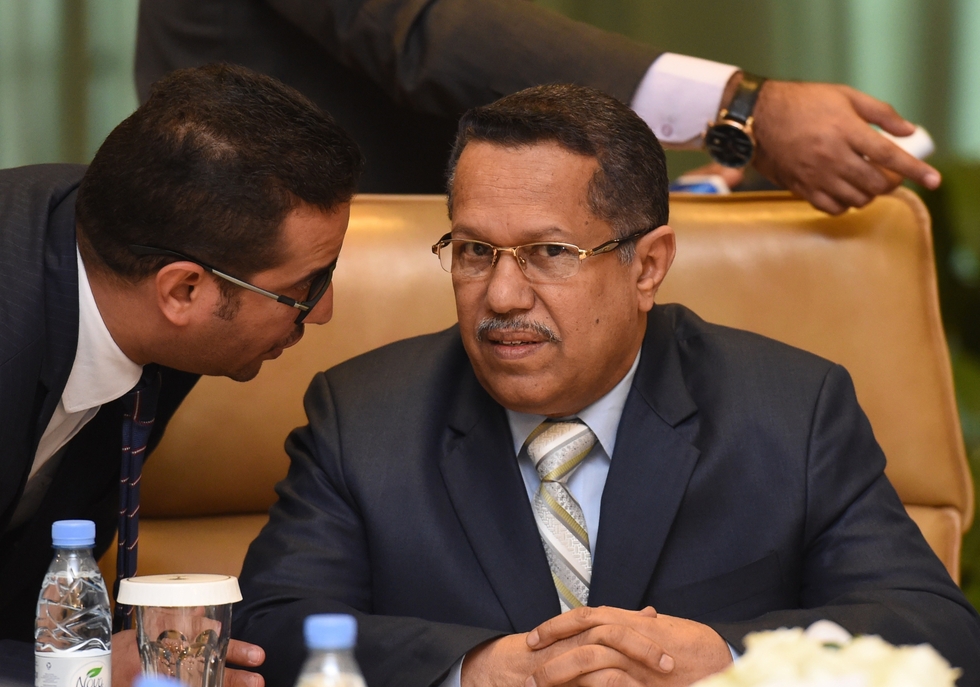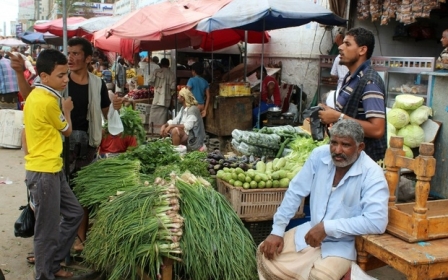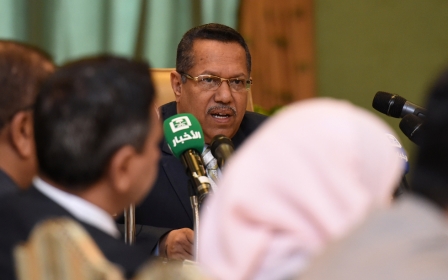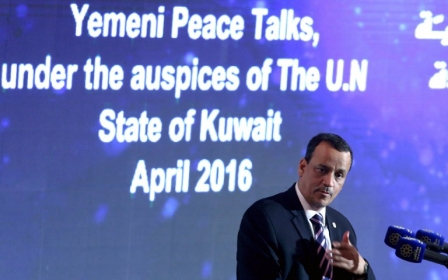Yemen govt to end peace talks boycott: UN
Yemen's foreign minister says the government will give peace talks with the Houthis a 'last chance' in Kuwait

Yemeni Prime Minister Ahmed bin Dagher (R) listens to his aide during a cabinet meeting (AFP)
Published date: 22 May 2016 10:49 BST
|
Last update: 8 years 6 months ago
The Yemeni government delegation is to rejoin UN-brokered peace talks in Kuwait with Houthi rebels who control Yemen's capital, ending a four-day boycott, the UN special envoy said Sunday.
The hard-won negotiations on ending a conflict that has killed more than 6,400 people and driven 2.8 million from their homes since March last year have been interrupted by repeated boycotts by the government delegation since they opened on 21 April.
UN envoy Ismail Ould Cheikh Ahmed said that President Abd Rabbuh Mansour Hadi had agreed to end the latest boycott after mediation by UN chief Ban Ki-moon and Qatari emir Sheikh Tamim bin Hamad Al-Thani.
Hadi's supporters had baulked at discussing rebel proposals for a unity government that they fear will sideline him and undermine his claim to international legitimacy.
They insist that the talks should focus instead on enforcing an April 2015 UN Security Council resolution demanding that the rebels withdraw from the capital and other territories they have overrun since 2014.
Foreign Minister Abdulmalek al-Mikhlafi said on Twitter that the government had agreed to give the peace talks a "last chance".
"We have fixed all the references. This is a first step on the path for a real peace that leads to implementing Resolution 2216 beginning with withdrawals, surrender of weapons and the restoration of state institutions," he said.
Despite a 14-month-old Saudi-led military intervention in support of Hadi's government, the rebels and their allies still control many of Yemen's most populous regions, including the central and northern highlands and the Red Sea coast.
New MEE newsletter: Jerusalem Dispatch
Sign up to get the latest insights and analysis on Israel-Palestine, alongside Turkey Unpacked and other MEE newsletters
Middle East Eye delivers independent and unrivalled coverage and analysis of the Middle East, North Africa and beyond. To learn more about republishing this content and the associated fees, please fill out this form. More about MEE can be found here.




